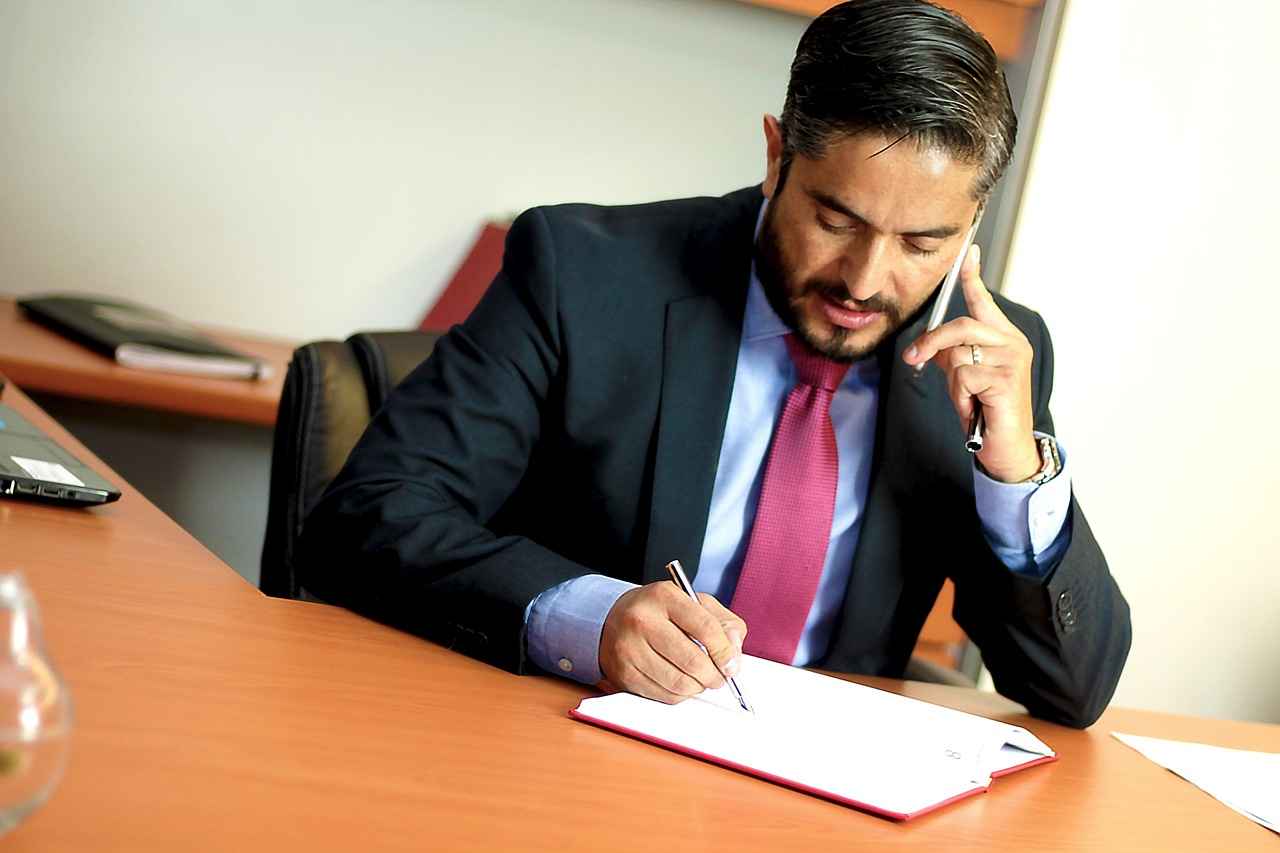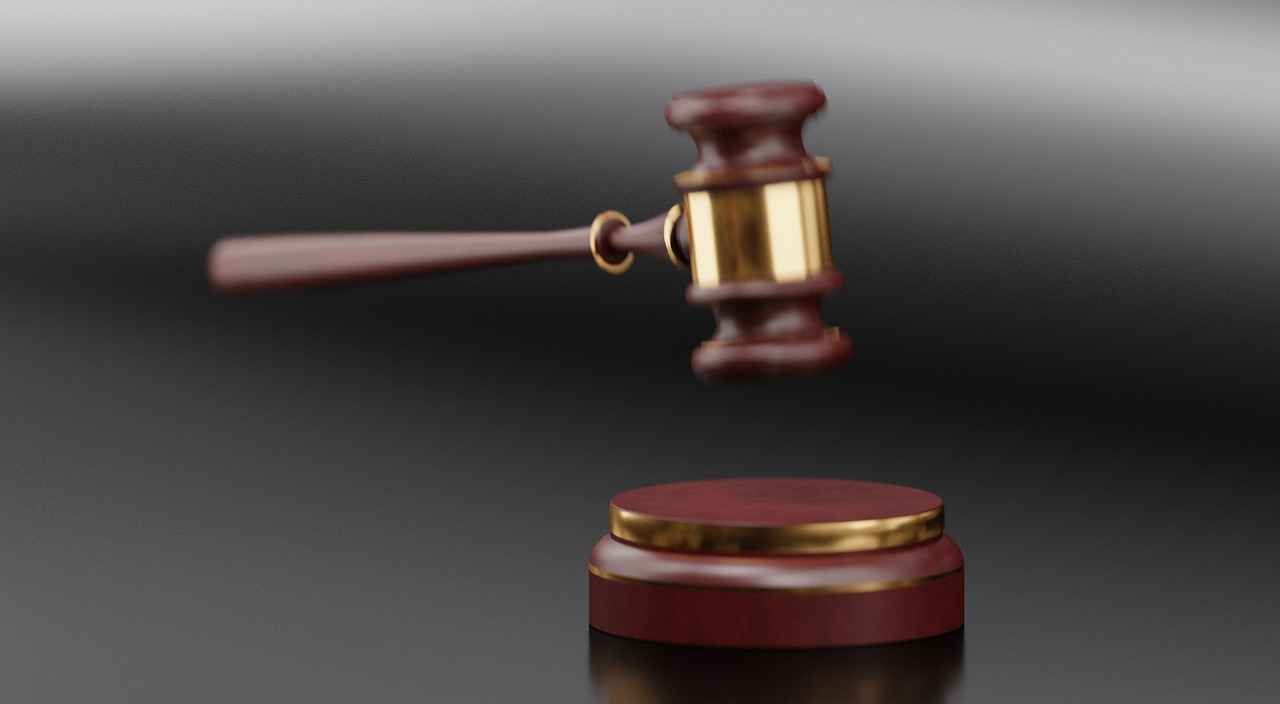This article explores various legal case types in the U.S. and provides expert guidance on finding qualified attorneys in St. Petersburg, Florida. With over 30 years of experience in the U.S. legal system, I aim to provide comprehensive insights into common legal cases and how to effectively seek legal representation.
Understanding Personal Injury Cases
Personal injury cases are among the most common legal disputes in the U.S. They arise when an individual suffers harm due to another’s negligence or wrongful actions. This can include car accidents, slip and falls, and workplace injuries. When seeking a personal injury attorney, look for someone with a strong track record of successful settlements and trials. Websites like Avvo and FindLaw can be useful for researching attorney credentials and client reviews. Red flags include attorneys who promise guaranteed outcomes or have numerous complaints against them.
Medical Malpractice: A Complex Legal Area
Medical malpractice cases involve healthcare professionals who fail to provide adequate care, resulting in patient harm. Finding a qualified attorney in this field is crucial, as these cases often require expert testimony and a deep understanding of medical standards. Look for attorneys who specialize in medical malpractice and have experience with similar cases. Ensure they are members of relevant professional organizations, such as the American Association for Justice. A lack of transparency regarding fees or a history of lost cases may indicate a less reliable attorney.
Breach of Contract: Protecting Your Rights
Breach of contract cases occur when one party fails to honor an agreement, leading to financial loss. To navigate these complex disputes, hire an attorney with expertise in contract law. They should be well-versed in negotiation and litigation. Platforms like Nolo provide resources for finding contract attorneys. Be wary of attorneys who lack experience in your specific type of contract or who are unwilling to discuss their fee structure upfront.
Property Disputes: Navigating Ownership Conflicts
Property disputes can arise from disagreements over ownership, boundaries, or rights to use land. Engaging a real estate attorney who understands local laws and regulations is essential. Look for attorneys with a successful history in property litigation. Websites like Lawyers.com can help you find qualified real estate attorneys in St. Petersburg. Avoid attorneys who do not provide clear communication or who have a history of unresolved cases.
Landlord-Tenant Disputes: Know Your Rights
Disputes between landlords and tenants can involve issues like eviction, security deposits, and lease agreements. A knowledgeable attorney can help navigate local landlord-tenant laws. It’s important to find an attorney who specializes in this area and has a successful track record in resolving disputes. The National Apartment Association can be a resource for finding qualified attorneys. Be cautious of attorneys who rush the process or do not seem to prioritize your case.
Defamation: Understanding Libel and Slander
Defamation cases involve false statements that harm an individual’s reputation. When seeking an attorney for a defamation case, look for someone with experience in media law or personal injury. They should have a strong understanding of libel and slander laws in your state. Resources like Lawyers.com can help you identify qualified attorneys. Avoid attorneys who lack a clear strategy for handling your case or who do not provide a realistic assessment of potential outcomes.
Employment Disputes: Ensuring Fair Treatment
Employment disputes can arise from wrongful termination, discrimination, or wage issues. It’s crucial to find an attorney who specializes in employment law and has a solid understanding of both federal and state laws. The National Employment Lawyers Association can assist in finding reputable attorneys. Be wary of attorneys who lack experience with similar cases or who do not offer a clear fee structure.
Product Liability: Holding Manufacturers Accountable
Product liability cases arise when a defective product causes injury. An attorney with expertise in this area can help you pursue claims against manufacturers or retailers effectively. Look for attorneys with a proven track record in product liability cases. Resources like Avvo can help you find qualified attorneys. Avoid attorneys who do not seem knowledgeable about product safety regulations or who are unwilling to take your case to trial if necessary.
Wrongful Death: Seeking Justice for Loved Ones
Wrongful death cases are filed when negligence leads to a person’s death. An experienced attorney can guide families through the legal process while seeking justice and compensation. Look for attorneys who have successfully handled wrongful death cases and who demonstrate compassion and understanding. Organizations like the American Bar Association can provide resources for finding qualified attorneys. Be cautious of attorneys who do not provide a clear path forward or who seem more interested in settling quickly than achieving justice.
Class Action Lawsuits: Collective Legal Action
Class action lawsuits allow groups of people to sue for common grievances. Understanding how to find an attorney experienced in class actions can help ensure your case is represented effectively. Look for attorneys with a history of successful class action cases and who are willing to discuss the complexities of your situation. Resources like ClassAction.org can help you find qualified attorneys. Avoid attorneys who do not take the time to explain the process or who lack transparency about fees.
Criminal Cases: Navigating the Justice System
Criminal cases, including theft, assault, and drug offenses, require skilled legal representation. Finding an attorney who specializes in criminal defense is crucial for a fair trial. Look for attorneys with a strong background in criminal law and a history of favorable outcomes for their clients. The National Association of Criminal Defense Lawyers can assist in finding qualified attorneys. Be wary of attorneys who guarantee outcomes or who do not seem to prioritize your defense.
Family Law: Navigating Divorce and Custody Issues
Family law encompasses divorce, child custody, and support matters. An attorney with family law expertise can help you navigate these emotional and legal challenges effectively. Look for attorneys who are members of the American Academy of Matrimonial Lawyers and have experience in similar cases. Resources like Lawyers.com can help you find qualified family law attorneys. Be cautious of attorneys who do not offer a clear plan for your case or who seem more focused on fees than your well-being.
Bankruptcy and Financial Issues: Getting a Fresh Start
Bankruptcy cases can provide relief from overwhelming debt. An experienced bankruptcy attorney can guide you through the process and help you understand your options for a fresh financial start. Look for attorneys who specialize in bankruptcy law and have a successful track record. The American Bankruptcy Institute can help you find qualified attorneys. Avoid attorneys who do not provide clear information about the bankruptcy process or who seem more interested in fees than helping you achieve financial freedom.

Understanding Personal Injury Cases
Personal injury cases represent a significant area of law in the United States, encompassing a wide range of incidents where individuals seek compensation for damages resulting from negligence or intentional harm. These cases are not just about physical injuries; they can also involve emotional distress, loss of income, and other non-economic damages. Understanding the intricacies of personal injury law is crucial for anyone considering legal action.
What Constitutes a Personal Injury Case?
A personal injury case typically arises when one party’s negligence or wrongful act leads to harm suffered by another. Common examples include:
- Car Accidents: Often caused by reckless driving, distracted driving, or driving under the influence.
- Slip and Fall Incidents: These occur due to unsafe property conditions, such as wet floors or broken stairs.
- Medical Malpractice: This involves healthcare professionals failing to provide the appropriate standard of care.
- Workplace Injuries: Employees injured on the job may file claims against their employers or third parties.
- Defective Products: Injuries caused by faulty products can lead to liability claims against manufacturers or retailers.
Why is Legal Representation Important?
Having a qualified attorney is essential in personal injury cases for several reasons:
- Expertise in Legal Procedures: Personal injury law is complex, and an experienced attorney understands the legal processes, deadlines, and documentation required.
- Negotiation Skills: Many personal injury cases are settled out of court. An attorney can negotiate effectively with insurance companies to secure fair compensation.
- Trial Experience: If a case goes to trial, having a lawyer with courtroom experience can significantly impact the outcome.
How to Choose the Right Personal Injury Attorney?
Finding the right attorney can be daunting, but there are several key factors to consider:
- Specialization: Look for attorneys who specialize in personal injury law, as they will have the specific knowledge and skills needed for your case.
- Reputation: Research potential attorneys through online reviews, testimonials, and recommendations from friends or family.
- Experience: Consider the attorney’s track record with similar cases and their success rate in obtaining favorable settlements or verdicts.
- Communication: Choose an attorney who communicates clearly and promptly, keeping you informed throughout the legal process.
- Fees: Understand the attorney’s fee structure, including whether they work on a contingency basis, meaning they only get paid if you win your case.
Red Flags to Avoid When Hiring an Attorney
While searching for a personal injury attorney, be cautious of the following red flags:
- Lack of Transparency: If an attorney is not clear about their fees or the legal process, it may indicate a lack of professionalism.
- Pressure Tactics: Be wary of attorneys who pressure you to sign contracts or make quick decisions.
- Poor Communication: If an attorney is hard to reach or does not respond to inquiries, it may signal future issues.
- Negative Reviews: Consistently poor reviews or complaints can indicate a problematic attorney-client relationship.
In conclusion, understanding personal injury cases and the importance of qualified legal representation is essential for anyone seeking justice after an injury. By conducting thorough research, considering key factors, and being aware of red flags, individuals can find the right attorney to guide them through the complexities of their case.

Medical Malpractice: A Complex Legal Area
Medical malpractice cases represent one of the most intricate areas of personal injury law. These cases arise when healthcare professionals, including doctors, nurses, and other medical staff, fail to meet the accepted standard of care, resulting in harm or injury to a patient. The complexities involved in proving medical malpractice stem from the need to establish that a medical professional’s actions were negligent and that this negligence directly caused the patient’s injury.
To successfully navigate a medical malpractice claim, it is essential to understand the following key elements:
- Standard of Care: This refers to the level of care that a reasonably competent healthcare professional would provide under similar circumstances. Establishing this standard is crucial in proving malpractice.
- Negligence: Negligence occurs when a healthcare provider fails to act as a competent professional would, leading to patient harm. Examples include misdiagnosis, surgical errors, and improper treatment.
- Causation: It must be demonstrated that the negligence directly resulted in the patient’s injury or worsened their condition.
- Damages: The injured party must show that they suffered actual harm, which can include physical pain, emotional distress, or financial loss due to medical bills or lost wages.
Finding a qualified attorney specializing in medical malpractice is crucial for the success of your case. Here are some expert tips to help you locate the best legal representation:
- Experience: Look for attorneys with a proven track record in handling medical malpractice cases. Their experience can significantly influence the case’s outcome.
- Credentials: Check for board certifications, memberships in professional organizations, and any accolades or recognitions in the field of medical malpractice law.
- Consultations: Many attorneys offer free initial consultations. Use this opportunity to assess their knowledge and approach to your specific case.
- Reviews and References: Look for online reviews, testimonials, and references from former clients to gauge the attorney’s reputation and success rate.
- Communication: Choose an attorney who communicates clearly and promptly. You want someone who will keep you informed throughout the legal process.
While finding the right attorney, be cautious of potential red flags. Avoid attorneys who:
- Promise guaranteed outcomes, as no attorney can guarantee success in a legal case.
- Pressure you into making quick decisions or signing contracts without fully understanding the implications.
- Lack transparency regarding fees and costs associated with the case.
In major metropolitan areas like New York City, Los Angeles, and Chicago, the competition among attorneys can be fierce. Utilize local bar associations and legal directories to find reputable attorneys in your area. Networking within healthcare communities or seeking referrals from trusted medical professionals can also lead you to qualified legal counsel.
In conclusion, navigating a medical malpractice case requires not only a deep understanding of the law but also the right legal representation. By focusing on the essential elements of malpractice, seeking experienced attorneys, and being aware of potential pitfalls, you can enhance your chances of a favorable outcome.

Breach of Contract: Protecting Your Rights
Breach of contract cases arise when one party fails to meet their obligations as outlined in a legally binding agreement. Contracts can be written or oral, and the obligations can range from delivering goods to providing services. When a breach occurs, it can lead to significant financial losses, emotional distress, and a host of legal complications. Therefore, it is crucial to understand your rights and the legal recourse available to you.
In the United States, contract law can be intricate, varying significantly from one state to another. This is why having a skilled attorney who specializes in contract law is essential. They can help you navigate the complexities of your case, whether you are the party that has been wronged or the one accused of breaching the contract.
When seeking legal representation for a breach of contract case, consider the following steps:
- Assess Your Needs: Determine the nature of your case. Is it a commercial contract, a real estate agreement, or a personal service contract? Different types of contracts may require different expertise.
- Research Potential Attorneys: Use online platforms such as Avvo or FindLaw to search for attorneys in your area. Look for those who specialize in contract law.
- Check Credentials: Verify their education, experience, and any special certifications. Look for attorneys who are members of professional organizations like the American Bar Association or state bar associations.
- Read Reviews: Client testimonials can provide insight into an attorney’s effectiveness and professionalism. Websites like Yelp and Google Maps often feature reviews of legal professionals.
- Schedule Consultations: Most attorneys offer free initial consultations. Use this opportunity to discuss your case, ask questions, and gauge their understanding of your specific situation.
During the consultation, you should also inquire about the attorney’s fee structure. Some attorneys charge hourly rates, while others may work on a contingency fee basis, meaning they only get paid if you win your case. Understanding the financial implications upfront can help you avoid surprises later on.
Moreover, it’s important to be aware of potential red flags when hiring an attorney. Be cautious of lawyers who guarantee results, as no attorney can predict the outcome of a legal dispute with certainty. Additionally, if an attorney is unwilling to provide references or seems disorganized during your initial meeting, consider it a warning sign.
In the event of a breach of contract, your attorney will typically guide you through the following steps:
- Document Everything: Gather all related documents, including the contract itself, correspondence, and any evidence of the breach.
- Attempt Resolution: Before escalating the matter to litigation, your attorney may advise attempting to resolve the issue through negotiation or mediation.
- File a Lawsuit: If negotiations fail, your attorney can help you file a lawsuit to seek damages or specific performance, depending on the terms of the contract.
Understanding the intricacies of breach of contract cases is vital for protecting your rights and interests. With the right attorney by your side, you can navigate this challenging legal landscape and work towards a resolution that serves your best interests.

Property Disputes: Navigating Ownership Conflicts
Property disputes are a common issue that many individuals face, often arising from conflicts over ownership, boundaries, or rights to use land. These disputes can involve neighbors, family members, or even business partners, and can lead to lengthy and costly legal battles if not resolved properly. Engaging an experienced attorney who specializes in property law is essential for effectively navigating these conflicts and ensuring that your property rights are protected.
One of the primary reasons for property disputes is unclear boundary lines. When property lines are not clearly defined, misunderstandings can occur, leading to conflicts over land usage. For instance, one party may build a fence or structure that encroaches on a neighbor’s property, prompting legal action. An attorney can help clarify property lines through title searches, surveys, and other legal tools, providing a clearer understanding of ownership.
Another common issue is disputes regarding ownership rights. This can occur in cases of inheritance, where multiple heirs may claim rights to a property, or in situations involving joint ownership. In such cases, an attorney can assist in mediating discussions and negotiating settlements to avoid protracted legal disputes. They can also represent clients in court if an amicable resolution cannot be reached.
Additionally, property disputes may arise from disagreements over easements and land use rights. For example, one property owner may wish to use a shared driveway or access a water source, while another may restrict such usage. An attorney can provide guidance on the legal implications of easements and advise clients on their rights and obligations.
To effectively handle property disputes, it is crucial to choose an attorney with the right qualifications and experience. Here are some practical tips for finding a qualified property attorney:
- Research Local Attorneys: Start by researching attorneys who specialize in property law in your area. Websites like Avvo and FindLaw can provide valuable information on local lawyers, including their specialties, reviews, and ratings.
- Check Credentials: Look for attorneys who have a proven track record in handling property disputes. Check their education, years of experience, and any relevant certifications or memberships in professional organizations.
- Read Reviews: Client reviews can provide insight into an attorney’s effectiveness and communication skills. Look for patterns in reviews, such as consistent praise for responsiveness or thoroughness.
- Consultation: Schedule consultations with potential attorneys to discuss your case. This initial meeting can help you gauge their knowledge, approach, and whether you feel comfortable working with them.
- Ask About Fees: Understanding an attorney’s fee structure is essential. Some may work on a contingency basis, while others charge hourly rates. Ensure you have a clear understanding of costs before proceeding.
In summary, property disputes can be complex and emotionally charged, but with the right legal representation, they can be resolved effectively. Engaging an experienced attorney not only helps protect your property rights but also provides peace of mind during a potentially stressful situation. Whether you are dealing with boundary disputes, ownership conflicts, or land use rights, having a knowledgeable advocate on your side can make all the difference in achieving a favorable outcome.

Landlord-Tenant Disputes: Know Your Rights
Landlord-tenant disputes are a common occurrence in rental agreements, often leading to significant stress for both parties involved. These disputes can encompass a wide range of issues, including eviction proceedings, disputes over security deposits, and complications arising from lease agreements. Understanding your rights and responsibilities as a tenant or landlord is crucial in navigating these conflicts effectively.
One of the most prevalent issues in landlord-tenant relationships is eviction. Eviction can occur for various reasons, such as failure to pay rent, violation of lease terms, or the landlord’s desire to reclaim the property for personal use. It’s important to note that landlords must follow specific legal procedures when evicting a tenant. This often involves providing proper notice and, in some cases, obtaining a court order. Tenants should be aware of their rights in these situations, including the right to contest an eviction in court.
Another common area of dispute involves security deposits. Landlords typically require a security deposit to cover potential damages or unpaid rent. However, disputes can arise regarding the amount withheld from the deposit upon a tenant’s move-out. Tenants have the right to receive an itemized list of deductions and should be aware of the time limits within which landlords must return the deposit. Familiarizing oneself with local laws regarding security deposits can help tenants protect their financial interests.
Lease agreements are also a frequent source of conflict. These legally binding contracts outline the terms of the rental arrangement, including rent amount, duration, and responsibilities of both parties. Disputes may arise if either party fails to uphold their end of the agreement. Tenants should carefully review their lease agreements and seek legal advice if they believe their rights are being violated. A knowledgeable attorney can assist in interpreting lease terms and determining the best course of action.
To resolve landlord-tenant disputes amicably, it is advisable to seek the guidance of a qualified attorney experienced in real estate law. They can provide valuable insights into local regulations and help mediate conflicts before they escalate into legal battles. When searching for an attorney, consider their credentials, experience, and client reviews. Look for professionals who specialize in landlord-tenant issues and have a proven track record of successful resolutions.
In addition to legal counsel, various resources are available for tenants and landlords to educate themselves about their rights and responsibilities. Local housing authorities and tenant unions often provide information and support for individuals facing disputes. Utilizing these resources can empower both parties to resolve conflicts more effectively and avoid costly legal proceedings.
In summary, understanding your rights in landlord-tenant disputes is essential for both landlords and tenants. Whether dealing with eviction, security deposits, or lease agreements, being informed and seeking professional legal guidance can help ensure that conflicts are resolved fairly and amicably.

Defamation: Understanding Libel and Slander
Defamation is a serious legal matter that can have profound implications on an individual’s personal and professional life. It occurs when false statements are made about someone, resulting in damage to their reputation. These statements can be categorized into two types: libel, which refers to written defamation, and slander, which pertains to spoken defamation. Understanding the nuances of defamation law is essential for anyone who believes they have been wronged.
When searching for an attorney experienced in defamation cases, there are several key factors to consider:
- Specialization: Look for attorneys who specialize in defamation law or have significant experience in handling similar cases. A specialized attorney will be familiar with the intricacies of both libel and slander, which can be crucial in building a strong case.
- Track Record: Review the attorney’s past cases and their outcomes. A successful history in defamation cases can be a strong indicator of their capability. Ask for references or testimonials from previous clients to gauge their satisfaction.
- Consultation: Many attorneys offer free initial consultations. Use this opportunity to discuss your case and assess the attorney’s understanding and approach. Pay attention to how they communicate and whether they listen to your concerns.
- Legal Fees: Understand the attorney’s fee structure. Some may work on a contingency basis, meaning they only get paid if you win the case, while others may charge hourly rates. Ensure you are comfortable with the financial arrangement before proceeding.
- Red Flags: Be wary of attorneys who make unrealistic promises or guarantees about the outcome of your case. Legal matters, especially defamation, can be complex and unpredictable.
In major metropolitan areas like New York City, Los Angeles, and Chicago, finding the right attorney can be competitive. Utilize legal directories such as Avvo or FindLaw to search for qualified professionals in your area. Additionally, local bar associations often provide referral services that can connect you with reputable attorneys.
It’s also important to consider the attorney’s communication style. Defamation cases can be emotionally charged, and having an attorney who is empathetic and responsive can make a significant difference in your experience. Look for someone who explains the legal process clearly and keeps you informed every step of the way.
In conclusion, defamation cases require careful consideration when selecting legal representation. By focusing on specialization, track record, and effective communication, you can find an attorney who will advocate for your rights and help you navigate the complexities of defamation law.

Employment Disputes: Ensuring Fair Treatment
Employment disputes represent a significant area of concern in the modern workplace, often arising from issues such as wrongful termination, discrimination, and wage disputes. These conflicts can be complex and emotionally charged, making it essential for individuals to seek legal assistance from attorneys who specialize in employment law.
When facing an employment dispute, it’s crucial to understand the specific nature of your case. Wrongful termination occurs when an employee is fired for illegal reasons, such as retaliation for whistleblowing or discrimination based on protected characteristics like race, gender, or age. In such cases, having a knowledgeable attorney can help you gather the necessary evidence and build a strong case.
Discrimination in the workplace can manifest in various forms, including hiring practices, promotions, and workplace treatment. If you believe you have been a victim of discrimination, a specialized employment lawyer can navigate the legal frameworks that protect your rights. They can guide you through the process of filing a complaint with the Equal Employment Opportunity Commission (EEOC) or pursuing a lawsuit if necessary.
Wage issues, including unpaid overtime or minimum wage violations, also fall under employment disputes. An attorney can help you understand your rights under the Fair Labor Standards Act (FLSA) and assist you in recovering any lost wages or benefits. They can also help negotiate settlements with employers who may be reluctant to comply with wage laws.
To find the best employment attorney for your situation, consider the following steps:
- Research Specialization: Look for attorneys who specialize in employment law and have a track record of handling cases similar to yours.
- Check Credentials: Verify their education, bar association membership, and any relevant certifications.
- Read Reviews: Look for client testimonials and reviews on legal platforms to gauge their reputation and success rate.
- Consultation: Schedule consultations to discuss your case. Many lawyers offer free initial consultations, allowing you to assess their approach and expertise.
- Ask Questions: Inquire about their experience with cases like yours, their strategy for handling disputes, and their fee structure.
Be wary of red flags such as attorneys who guarantee specific outcomes, lack clear communication, or push for quick settlements without thoroughly evaluating your case. A competent attorney will provide realistic expectations and work diligently to protect your rights.
In summary, navigating employment disputes requires a careful approach and the guidance of a qualified attorney. By understanding the types of disputes that can arise and knowing how to find the right legal representation, you can ensure that your rights are protected and that you receive fair treatment in the workplace.

Product Liability: Holding Manufacturers Accountable
Product liability cases are a critical aspect of consumer protection law, addressing situations where a defective product causes harm or injury to a user. In the United States, product liability encompasses several legal theories, including design defects, manufacturing defects, and failure to warn about potential risks associated with a product. Understanding the intricacies of product liability is essential for consumers and legal professionals alike.
When a product malfunctions or fails to perform as intended, it can lead to serious injuries or damages. For instance, a faulty appliance may cause burns or electrical shocks, while a defective vehicle part could lead to catastrophic accidents. In such cases, victims have the right to seek compensation from manufacturers, retailers, or even distributors.
To navigate the complexities of product liability claims, it is crucial to engage an attorney with specialized knowledge in this field. Here are some practical steps to help you find the right legal representation:
- Research Experience: Look for attorneys who have a proven track record in handling product liability cases. Their experience can significantly influence the outcome of your claim.
- Check Credentials: Ensure the attorney is licensed to practice in your state and is a member of relevant legal associations, such as the American Bar Association or state-specific trial lawyer associations.
- Read Reviews: Utilize online platforms such as Avvo or Martindale-Hubbell to read client reviews and ratings. This feedback can provide insight into the attorney’s reputation and effectiveness.
- Consultation: Schedule consultations with multiple attorneys to discuss your case. This will allow you to gauge their understanding of product liability law and their approach to handling your case.
- Ask About Fees: Understand the attorney’s fee structure. Many product liability lawyers work on a contingency fee basis, meaning they only get paid if you win your case. Clarify any additional costs that may arise during the legal process.
In addition to these steps, be aware of potential red flags when selecting an attorney:
- Lack of Experience: Avoid attorneys who do not have a history of handling product liability cases, as this area of law requires specific expertise.
- Poor Communication: If an attorney is unresponsive or fails to communicate clearly during initial consultations, it may indicate future issues in your case.
- Pressure Tactics: Be cautious of attorneys who pressure you into signing agreements quickly. A reputable lawyer will allow you time to consider your options.
In highly populated areas like New York City, Los Angeles, and Chicago, the competition among attorneys can be fierce. Therefore, leveraging local resources such as legal aid organizations or consumer protection groups can also be beneficial in identifying qualified attorneys. Furthermore, networking with friends, family, or colleagues who have dealt with similar legal issues can provide personal recommendations and insights.
Ultimately, product liability cases can be complex and challenging, but with the right legal representation, victims can seek justice and compensation for their injuries. By following these guidelines, you can enhance your chances of finding a qualified attorney who will advocate effectively on your behalf.

Wrongful Death: Seeking Justice for Loved Ones
Wrongful death cases represent a tragic intersection of negligence and loss, occurring when an individual dies due to the reckless or negligent actions of another party. These cases can stem from various circumstances, including automobile accidents, medical malpractice, and even defective products. The emotional toll on families is profound, making it essential for them to seek justice and compensation for their loss. Navigating the legal landscape of wrongful death claims can be complex, but with the right guidance, families can pursue their cases effectively.
When considering a wrongful death claim, it is crucial to understand the legal framework surrounding these cases. In the United States, wrongful death laws vary by state, which means that the specific requirements for filing a claim can differ. Generally, a wrongful death claim can be filed by the deceased’s family members or beneficiaries, and it seeks to recover damages for lost income, funeral expenses, and emotional suffering.
Finding an experienced attorney is vital in these situations. Here are several key factors to consider when searching for legal representation:
- Experience and Specialization: Look for attorneys who specialize in wrongful death cases. Their familiarity with similar cases can significantly enhance your chances of a favorable outcome.
- Track Record: Research the attorney’s history with wrongful death claims. A proven track record of successful settlements or verdicts can indicate their effectiveness.
- Client Testimonials: Read reviews and testimonials from previous clients. This feedback can provide insight into the attorney’s communication skills and overall client satisfaction.
- Initial Consultation: Many attorneys offer free consultations. Use this opportunity to gauge their understanding of your case and their willingness to advocate for your family.
- Transparent Fees: Understanding the attorney’s fee structure is essential. Some may work on a contingency basis, meaning they only get paid if you win your case.
In major metropolitan areas such as New York City, Los Angeles, and Chicago, you will find a plethora of legal professionals. Utilize online platforms like Avvo, FindLaw, and Martindale-Hubbell to research attorneys in your area. These platforms allow you to filter by practice area, read reviews, and compare credentials.
It’s essential to be aware of red flags that may indicate a less-than-reputable attorney. Be cautious of lawyers who promise guaranteed outcomes, pressure you to make quick decisions, or lack transparency regarding their fees. A trustworthy attorney will provide you with a realistic assessment of your case and the potential outcomes.
In conclusion, wrongful death cases are emotionally charged and legally complex. By seeking the right legal representation, families can navigate the process more effectively and focus on healing while pursuing justice for their loved ones. Remember to consider the attorney’s experience, track record, and client feedback, and utilize reputable online resources to find the best legal support in your area.

Class Action Lawsuits: Collective Legal Action
Class action lawsuits are a powerful legal tool that allows groups of individuals with similar grievances to band together and sue a defendant, usually a corporation or government entity. This collective approach often makes it easier for individuals to seek justice and compensation for wrongs that they may not have been able to pursue individually due to high costs or the complexity of the legal system.
When considering a class action lawsuit, it is crucial to find an attorney who specializes in this area of law. Here are some practical steps to ensure you find the most qualified legal representation:
- Research Specialized Attorneys: Look for lawyers who have a proven track record in class action cases. Websites like Avvo and Lawyers.com can provide ratings and reviews of attorneys based on their experience and client feedback.
- Check Credentials: Verify that the attorney is licensed to practice in your state and has experience specifically with class action lawsuits. Membership in professional organizations such as the American Association for Justice can also indicate a commitment to this area of law.
- Understand Their Experience: Ask potential attorneys about their past class action cases. Inquire about the outcomes and the strategies they employed. This will give you insight into their competence and approach to similar cases.
- Look for Transparency: A good attorney will be open about their fees, the potential risks involved in your case, and the likelihood of success. Ensure you understand their billing structure, whether it’s on a contingency basis or hourly.
- Evaluate Communication Skills: Effective communication is key in any legal matter. Choose an attorney who listens to your concerns, explains legal concepts clearly, and keeps you informed throughout the process.
- Seek Referrals: Personal recommendations from friends, family, or other attorneys can lead you to trustworthy legal professionals. If you know someone who has successfully navigated a class action, ask them about their experience and who they worked with.
- Assess Compatibility: Your attorney will be your advocate, so it’s important to choose someone you feel comfortable with. Schedule initial consultations to gauge how well you connect with potential lawyers.
Class action lawsuits can be complex and lengthy, often taking years to resolve. By carefully selecting an attorney with the right expertise and approach, you can enhance your chances of a favorable outcome. Remember, the right legal representation not only understands the law but also empathizes with the collective struggle of the group involved.
In summary, finding a qualified attorney for a class action lawsuit involves diligent research, understanding the legal landscape, and ensuring that the attorney’s experience aligns with your specific needs. With the right guidance, you can navigate this challenging process and work towards achieving justice for all affected parties.

Criminal Cases: Navigating the Justice System
Criminal cases are among the most serious legal matters one can face, encompassing a wide range of offenses from theft and assault to drug offenses and homicide. The stakes are high, as a conviction can lead to significant penalties, including imprisonment, fines, and a permanent criminal record. Therefore, securing skilled legal representation is not just beneficial; it is essential for anyone involved in a criminal case.
When searching for an attorney specializing in criminal defense, it is important to consider several factors. First, look for attorneys with a proven track record in handling cases similar to yours. For instance, if you are facing drug charges, seek an attorney who has successfully defended clients in drug-related cases. This specialization indicates that the attorney is familiar with the relevant laws and procedures, which can significantly impact the outcome of your case.
In major metropolitan areas like New York City, Los Angeles, and Chicago, there are numerous resources available to help you find qualified attorneys. Online legal directories, such as Avvo and FindLaw, allow you to search for attorneys by location and practice area. These platforms also provide client reviews and ratings, which can give you insights into an attorney’s reputation and effectiveness.
Another valuable resource is your local or state bar association. Many bar associations offer referral services that can connect you with attorneys who specialize in criminal defense. This is particularly useful if you are unsure where to start your search. Additionally, consider asking for recommendations from friends, family, or colleagues who have had positive experiences with criminal defense attorneys.
When evaluating potential attorneys, pay attention to their credentials. Look for attorneys who are members of professional organizations, such as the National Association of Criminal Defense Lawyers (NACDL) or state-level associations. Membership in these organizations often indicates a commitment to staying updated on the latest legal developments and best practices in criminal defense.
It is also critical to have an initial consultation with any attorney you are considering. This meeting allows you to ask questions about their experience, approach to your case, and fees. During this consultation, be wary of any red flags, such as an attorney who guarantees a specific outcome or pressures you into making quick decisions. A reputable attorney will provide you with honest assessments and take the time to explain the complexities of your case.
In addition to understanding the legal aspects, it’s essential to consider the attorney’s communication style. You want someone who will keep you informed throughout the process and be available to answer your questions. A good attorney-client relationship is built on trust and transparency, which can significantly ease the stress of navigating the criminal justice system.
Overall, finding the right criminal defense attorney involves thorough research and careful consideration. By taking the time to evaluate your options and seek qualified representation, you can better navigate the complexities of the justice system and work towards the best possible outcome for your case.

Family Law: Navigating Divorce and Custody Issues
Family law is a vital area of legal practice that addresses issues surrounding personal relationships, including divorce, child custody, and support matters. Navigating these emotional and often complex legal challenges can be daunting for individuals and families. An attorney with family law expertise can provide invaluable support during these tumultuous times. They can help ensure that your rights are protected and that you understand your options moving forward.
When seeking a family law attorney, it is essential to consider several factors to ensure you find the right fit for your specific needs. Here are some key points to keep in mind:
- Experience and Specialization: Look for attorneys who specialize in family law. Their experience in handling similar cases can significantly impact the outcome of your situation. Verify their track record in divorce and custody cases.
- Reputation: Research the attorney’s reputation in the community. Online reviews, testimonials, and referrals from friends or family can provide insight into their professionalism and effectiveness.
- Communication Skills: Effective communication is crucial in family law cases. Your attorney should be able to explain legal concepts clearly and listen to your concerns.
- Approach to Mediation: Many family law cases benefit from mediation rather than litigation. An attorney who is skilled in mediation can help facilitate a smoother resolution.
- Fee Structure: Understand the attorney’s fee structure upfront. Some may charge hourly, while others might offer flat fees for specific services. Ensure you are comfortable with their billing practices.
In major metropolitan areas like New York City or Los Angeles, the demand for family law attorneys is high, making it essential to act quickly when searching for legal representation. Utilize online platforms such as Avvo or FindLaw to compare attorneys based on their ratings, specialties, and client reviews. Additionally, local bar associations often provide referral services that can connect you with qualified family law attorneys in your area.
It is also crucial to be aware of red flags when hiring a family law attorney. Be cautious of attorneys who promise guaranteed outcomes, as no attorney can predict the results of a case with certainty. Additionally, if an attorney is unwilling to provide references or is vague about their experience, it may be a sign to look elsewhere.
Ultimately, finding the right family law attorney involves research and consideration. By focusing on the factors mentioned above, you can better navigate the complexities of family law and ensure that your legal needs are met with expertise and compassion.

Bankruptcy and Financial Issues: Getting a Fresh Start
Bankruptcy is a legal process that offers individuals and businesses a way to relieve themselves from overwhelming debt. It can serve as a crucial lifeline for those grappling with financial crises, allowing them to reset their financial situation and start anew. However, navigating the complexities of bankruptcy law requires expert guidance. An experienced bankruptcy attorney is essential to help you understand your options and the implications of filing for bankruptcy.
When considering bankruptcy, it’s important to be aware of the different types of bankruptcy filings available. The two most common types for individuals are Chapter 7 and Chapter 13. Chapter 7 bankruptcy allows for the liquidation of non-exempt assets to pay off creditors, while Chapter 13 enables individuals to reorganize their debts and create a repayment plan over three to five years. An attorney can help you determine which option is best suited to your financial situation.
Finding the right bankruptcy attorney in a metropolitan area like St. Petersburg, Florida, involves several steps. Here are some practical tips to ensure you choose a qualified legal professional:
- Research Credentials: Look for attorneys who specialize in bankruptcy law and have a solid track record. Check their education, experience, and any certifications in bankruptcy law.
- Read Reviews: Online platforms such as Avvo or Martindale-Hubbell provide ratings and reviews from former clients. These can give you insights into the attorney’s reputation and effectiveness.
- Consultation: Schedule a consultation to discuss your financial situation. This initial meeting can help you gauge the attorney’s understanding of bankruptcy law and their approach to handling cases.
- Assess Communication: An effective attorney should communicate clearly and be responsive to your queries. Ensure you feel comfortable discussing your financial issues with them.
- Evaluate Fees: Understand the fee structure upfront. Some attorneys may charge a flat fee for bankruptcy services, while others may bill hourly. Make sure there are no hidden charges.
Beware of red flags when hiring a bankruptcy attorney. These include:
- Unrealistic Promises: Be cautious of attorneys who guarantee specific outcomes or promise to eliminate all debts without a thorough assessment of your case.
- Lack of Transparency: If the attorney is unwilling to provide clear information about their fees or the bankruptcy process, consider this a warning sign.
- No Specialization: Ensure the attorney specializes in bankruptcy law. General practitioners may not have the necessary expertise to handle your case effectively.
Additionally, understanding the potential consequences of filing for bankruptcy is crucial. While it can provide a fresh start, it also has long-term effects on your credit score and financial future. An experienced attorney can help you navigate these implications and develop a strategy to rebuild your credit post-bankruptcy.
In summary, bankruptcy can be a viable solution for those facing insurmountable debt. By engaging a knowledgeable bankruptcy attorney, you can ensure that your rights are protected and that you receive the best possible outcome. Take the time to research and choose a qualified professional who can guide you through this challenging process.
Frequently Asked Questions
- What should I look for when hiring a lawyer in St. Petersburg?
When hiring a lawyer, consider their experience in your specific case type, their reputation, and client reviews. It’s also important to assess their communication style and whether you feel comfortable discussing your case with them.
- How much does a lawyer typically charge?
Lawyer fees can vary widely based on the case type, complexity, and the lawyer’s experience. Some may charge hourly rates, while others work on a contingency basis, meaning they only get paid if you win your case.
- Can I represent myself in court?
Yes, you can represent yourself, but it’s often not advisable, especially in complex cases. The legal system can be intricate, and having a knowledgeable attorney can significantly increase your chances of a favorable outcome.
- What is the difference between civil and criminal cases?
Civil cases involve disputes between individuals or entities, often seeking monetary compensation, while criminal cases involve actions deemed harmful to society, leading to prosecution by the government.
- How long does it take to resolve a legal case?
The duration varies based on the case type and complexity. Some cases can be resolved in a few months, while others may take years. Consulting with your attorney can give you a better estimate based on your specific situation.














